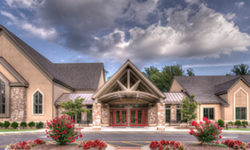
Three Ways to Pray the Psalms
August 3, 2021 | Andrew Zakhari
This past Sunday, the church pastoral team asked you to consider praying through the Psalms in the month of August. We provided this mobile friendly reading plan for you to follow.
Advantages to Praying the Psalms
- When you don’t know what or how to pray, the Psalms provide immediate, divinely-inspired language to speak to the Lord.
- You can be confident that what you are praying is consistent with God’s will. Sometimes we fear that bringing our doubts, questions, or frustrations to God in prayer is inappropriate. The Psalms actually show us that bringing our whole heart to prayer (not just the parts of our heart we feel are cleaned up enough) is necessary for transformation. The Psalms show us God wants to hear from us more than we even want to talk to him!
- The Psalms bring depth and variety to prayer. Prayer can be difficult because we find ourselves praying for the same things in the same way. The Psalms give us a great variety of ways to pray: thanksgiving, confession, asking God to intervene for others, lamenting over losses, expressing our fears, praying to have hope when we don’t feel hope, etc.
- The Psalms provide insight and freshness that our prayer life needs.
Three Ways to Pray Through the Psalms
As you get started, we thought it might be helpful to have some guidance on how to use the Psalms for prayer. Below are three ways you can approach prayer and we will also address a difficult subject when it comes to Christians praying the Psalms.
- Pray word-for-word through many Psalms because they resonate exactly with your mood, desire, and circumstances.
- Psalm 8:1 “O Lord, our Lord, how majestic is your name in all the earth.”
- Psalm 51:1-2 “Have mercy on me, O God, according to your steadfast love, according to your abundant mercy blot out my transgressions. Wash me thoroughly from inquiry and cleanse me from my sin!”
- Paraphrase the Psalms.
- The Psalm writer’s circumstances and struggles may be similar to ours but they aren’t the same. All of our lives are uniquely shaped and ordered by God. It may be helpful to paraphrase the truth in the Psalms to meet your situation.
- Psalm 23:1 paraphrase: “Lord, you are the one who watches over me and takes care of all my needs. I need your shepherding care in my life as I feel lots of pressure at work/school/home.”
- Respond to God in similar fashion to many Psalms.
- As you meditate on a Psalm ask yourself, “What response does this verse bring up in me?” Then consider how you might convert that response into a prayer to God.
- Psalm 9:3: “When my enemies turn back, they stumble and perish before your presence.”
- Prayer: God, help me to have the confidence to know that you will be my protector at all times; that I need not fear any harm because no opposition will stand against me because I am in Christ.”
Enemies in the Psalms
Jesus makes it clear that Christians are called to love their enemies (Matt. 5:43-48). Yet the Psalm writers seem to be filled with hatred toward their enemies and even want their children dashed against the rocks (Psalm 137:9). What’s going on here?
This question deserves a much more thorough answer than can be provided in a blogpost. Our purpose will focus on how we can pray this verse (and others like it) when we get to them in the Psalms.
On the one hand, we must remember that God’s covenant with his people in the Old Testament included his defense and protection for them against military enemies that no longer applies to God’s people in the New Testament, since the inauguration of the new covenant by Jesus. This covenant of peace extends to Jews and Gentiles alike.
On the other, the church continues to do battle in the world -spiritual battle. Daily we all confront temptations from Satan and ongoing sin in our lives. We live in a world that has not yet experienced full redemption and is subject to dark forces and influences that oppose God’s eternal kingdom. As Paul reminds us, “For our struggle is not against flesh and blood, but against the rulers, against the authorities, against the powers of this dark world and against the spiritual forces of evil in the heavenly realms (Ephesians 6:12).
It is with this understanding that we can pray with boldness against all these enemies. The Psalms help us daily to stay vigilant in spiritual warfare: we can ask for God’s help and power to deliver us from tempting thoughts, resist opportunities to sin as they come up during the day, and pray against the triumph of evil in our society, in our church, and in our homes.
I hope this guide aids you in your desire to grow closer to God through using his inspired prayerbook!
Recommended resources:
Praying the Psalms (T.M. Moore)
The entire Psalter in NKJV with prayer prompts for each of the Psalms. There’s excellent introductory material on how to pray the Psalms (relied heavily upon in the blog post).
Psalms: The Prayer Book of the Bible (Dietrich Bonhoeffer)
A brief, practical and spiritually rich guide by the famous theologian and Nazi resister! Highly recommended.
Christ in the Psalms (Patrick Henry Reardon)
Original church newsletter articles Reardon published for his parish. He provides about 1.5 pages of commentary on each of the Psalms. He consistently applies them to the life and ministry of Christ. He is an insightful theologian and pastor from the Eastern Orthodox tradition.
How to Read the Psalms (Tremper Longman III)
Longman is a seasoned evangelical biblical scholar who wrote this accessible and helpful guide to the Psalms. An excellent companion book to the Psalms.
Songs of Jesus (Timothy Keller with Kathy Keller)
A year’s worth of devotional reflections and prayers based on the Psalms from the Kellers. As with anything Tim Keller puts together, there is much timely wisdom to be found in this devotional book.






